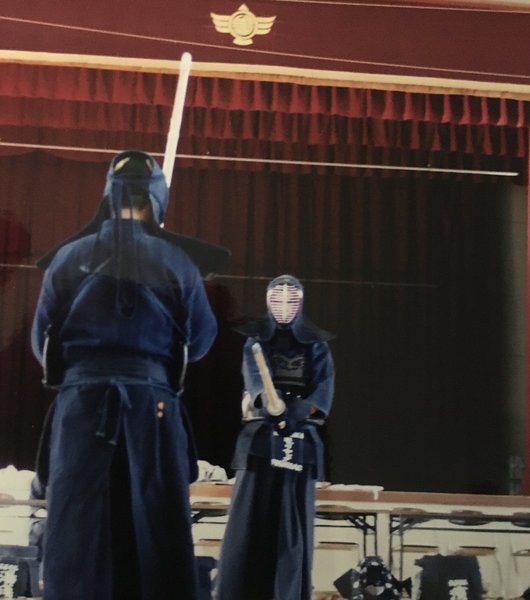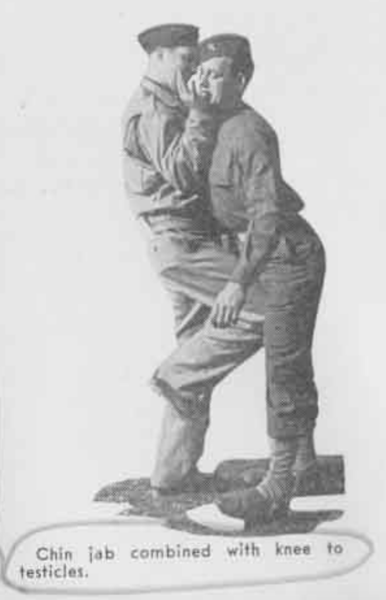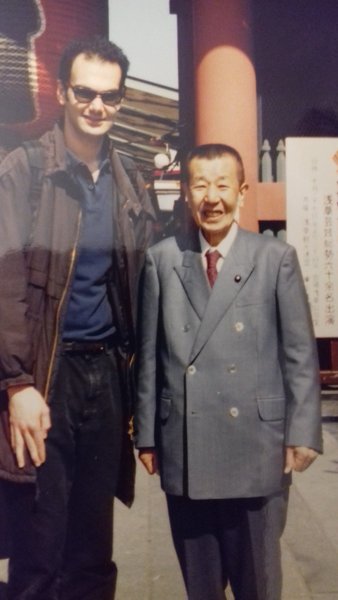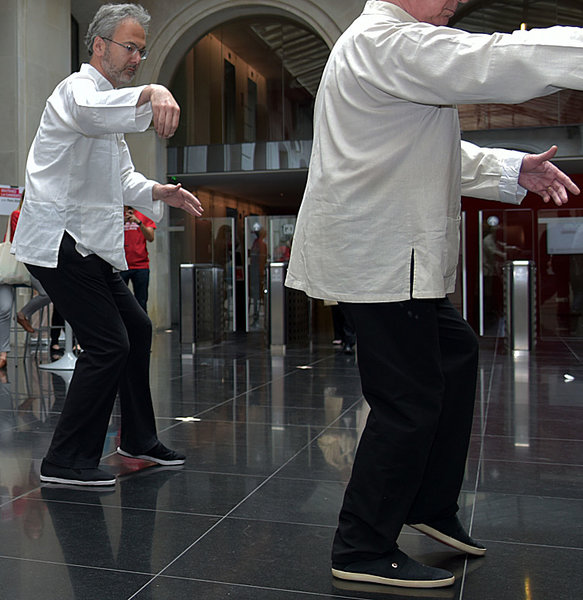Why define combat as 1-on-1 in a room with a well padded floor and practitioners who stop before death? How long would you last in Sarajevo during the Kosovo war, or Helmand Province during recent operations, or Yemen right now amongst the PMC teams paid for by your taxes?A lot of practitioners of performance wushu have publicly stated that what they do is not practical for realistic fighting, that they are artists, but not fighters. I think that this is a very healthy attitude. There are other reasons to practice a martial artist than becoming a skilled fighter. I do feel that the insistence of some traditional martial artists (hard and soft styles alike) that their styles, which are often completely untested in actual combat, are good for combat, to be foolish, at best. [...]
I'm definitely not against traditional martial arts - I hold a decent dan level in Shotokan, and also hold a decent ranking in Kenpo. I am very much against any statement of efficacy that a practitioner will not back up in combat.
Yes, UFC 1 gave a rough idea of what kind of things worked best in a certain setting but what percentage of the modern Marine's training is MCMAP vs reading books, or how much hand to hand combat is the average Q course candidate going to need to pass selection? Under this definition, whilst you might very well "take on" "warrior monk" Mattis, or Carlos Hathcock even at his peak, on the mat, the average Singaporean male is a more "skilled fighter" thanks to his two years running around in the jungle with a SAR 21 (unless there is a part of your life you have kept very quiet about).
The peacetime military world is unfortunately full of Walter Mitties. I think that the old school wars between developed nations (which never happen anymore - how are we to know today whether COIN is a good idea when back in the good old days something like De Gaulle's idea of combined arms as published in his 1932 Fil de l'Epee would be vindicated in real combat half a decade later by Guderian and Rommel) would keep people a lot more honest. Instead we get speculative essays (counterpoint). (no, I am not serious)The martial arts world is unfortunately full of charlatans. I think that the old school dojo storms (which never happen any more) would keep people a lot more honest.




















